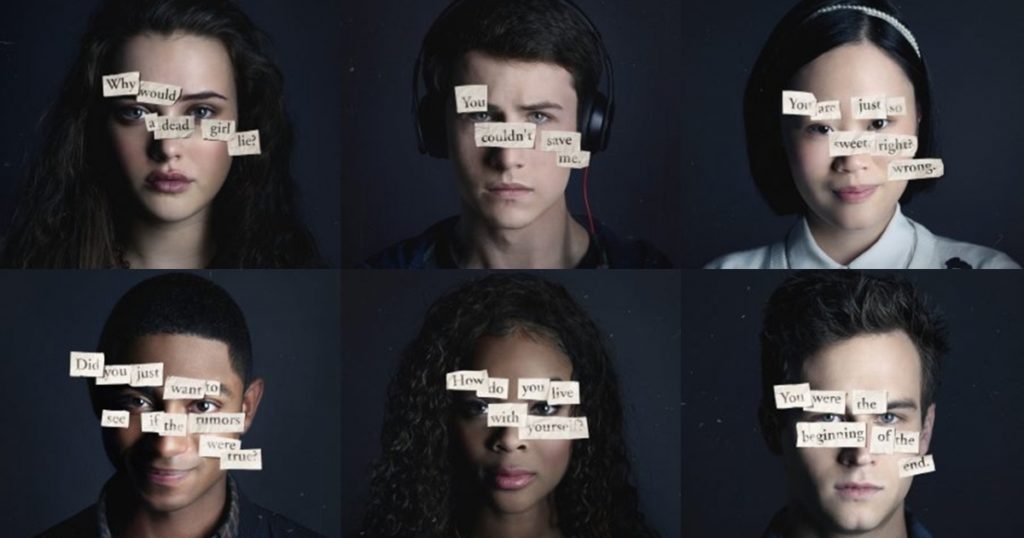Once again, Netflix’s “13 Reasons Why” is back in the news. The program, which now has two seasons under its belt, documents the suicide of a misunderstood teen who leaves 13 tapes identifying people and circumstances which ultimately led her to believe there was no way for her to continue living.

According to a study published in the Journal of American Academy of Child and Adolescent Psychiatry, in the months after “13 Reasons Why” aired, suicides committed by youth, ages 10 – 17, jumped an alarming 28.9 percent.
I can’t help but think about the actual harm from the impact of this show had the study been expanded to include those who had suicidal thoughts, ideation or attempts, including even more recent suicides that have happened (but can be linked back to the release of the show).
I would love to challenge the producers of this show to sit for even five minutes with a family that has lost a child after watching this show, to tell the family that the statistics really don’t support such an alarmist response, or even better yet, that the parents should have thought to pay attention to what their children were watching given the PG-13 rating.
Five minutes would be an eternity to a producer who is sitting across from a parent that has had their soul crushed by the devastation of a suicide, or even the threat of one with a child that is on the brink of wanting to die.
What I would tell these executives is that the numbers don’t lie.
In the months after “13 Reasons Why” was released, there was a 40 percent increase in hospital admissions related to suicidal ideation and a 20 percent increase in Google searches about suicide by teens. It doesn’t take a PhD to connect the dots that there is an impact.
Is “13 Reasons Why” really to blame for the jump in suicides?
While there is no definitive proof that the show is the sole cause of the increase in suicides in young adults, I believe there is absolutely a direct connection.
To start, the show went viral on social media and trended among kids ages 10 and up on social platforms. The program itself glorifies suicide and suggests ending one’s life is a socially acceptable answer to handling depression and feelings of sadness. The teen who ends her life, Hannah Baker, is made a martyr in death, exposing the many ills of lives of teenagers.
Because there is little oversight and knowledge by parents regarding what kids are streaming online, there’s a good chance that children who watched this and had suicidal thoughts missed an opportunity to discuss how they were feeling with adults.
What can you do to prevent teen suicide?
Parents need to gain the knowledge necessary regarding how to handle teens who may be suicidal. There are no oversights or regulation regarding television programs (or music or social media, etc.) and it’s important to remember that we can’t trust the media to protect our kids.
And, there are plenty of warning signs, such as:
- Noticeable changes in eating or sleeping habits, personality
- A drastic and unexplained change in rebellious or violent behavior
- Becoming sexually promiscuous
- Engaging in acts of vandalism or other illegal activities
- Being truant
- Withdrawing from friends and family
- Behavior that is panicky, restless, agitated
- Lower grades in school
- Talking about, writing or joking about committing suicide
If parents notice any of these signs or if they are crying out for help online, it’s extremely important to get appropriate intervention. Start by offering help, listening and be caring and non-judgemental.
If your teen is suicidal, try to remove anything which can cause them harm like guns, pills and ropes and certainly keep a closer eye on them with frequent check ins and direct conversations about whether they have a plan. If there is cause for concern, immediately take them to an emergency room to get them under direct supervision and immediate care.
If they don’t have an immediate plan, you still need to get your teen professional help. Regardless of whether the immediate risk has passed, it’s important that your child learns how to cope and manage these feelings.
Protect your child from online dangers and help lessen the risk of teen suicide. Sign up for our home program today.




